#robert booth
Explore tagged Tumblr posts
Text
so who had the government violating human rights law because they hate poor people on their 2023 tory bingo?
yeah so this piece by robert booth just got published in the guardian and it begins as such:
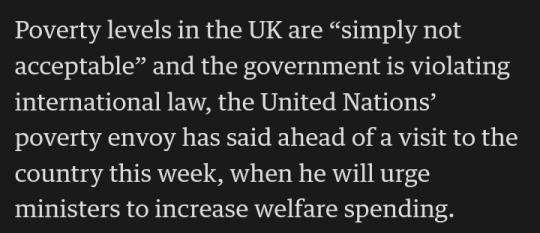
which is not at all surprising because yeah the government really hates poor people here. like as in one of the "solutions" to rising in homelessness in cities is to just,, buy unhoused people a one way train ticket to somewhere else.
its good to know that weve officially reached the level of violating international law. and by good, i dont know what i mean either.
anyway, booth goes on to say:


he is, of course, incredibly correct, and im highkey obsessed with him calling the welfare state "a leaking bucket".
obviously, the government gave a response of:
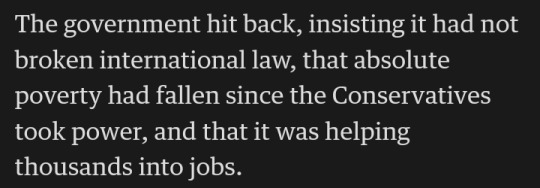
but did also go on to say this:

which doesnt really strengthen their argument. if anything, it actively hampers it.
it is also incredibly funny that the government's response to being accused of human rights violations due to the poverty in their country by the guy whose job involves being the go-to expert on human rights and poverty is akin to a child saying they didnt steal the chocolate that is staining their clothes and their hands and also they are still eating it.
please join me in pointing and laughing. at least, we have that.
de schutter actually offers solutions of his own within the article:

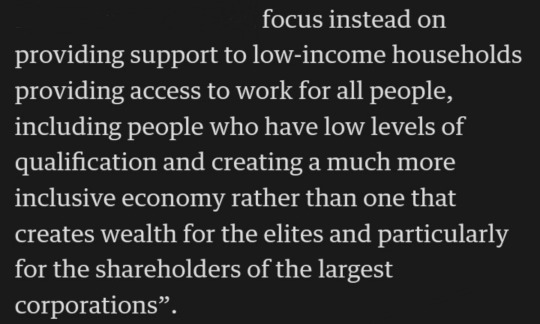
these, of course, famously being loved by tories. loved so much that they just forgot to do any of it during the last 13 years.
yeah, its been 13 fucking years.
if you dont use your vote to vote them out at the next general election, i will break your kneecaps with a rounders bat.
anyway, robert booth finishes the article off with:
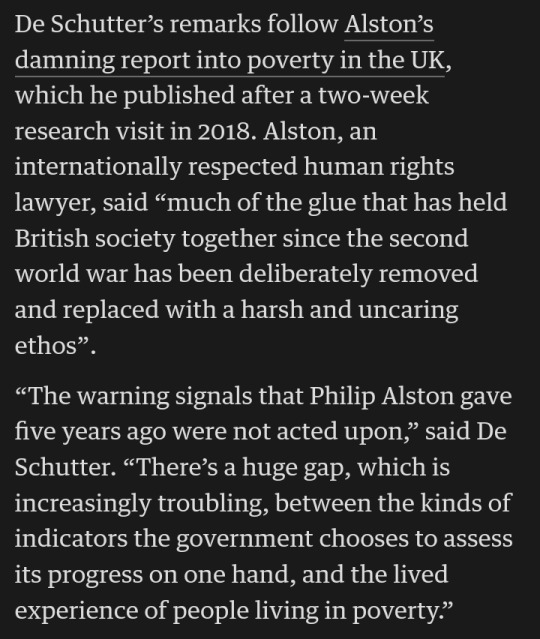
and wheres the fucking lie? it hits the nail on the head so accurately, its honestly as impressing as it is depressing.
obviously, this isnt the entire article and i would implore you to read all of it.
i dont exactly have my hopes up for the government actually doing anything to effectively address poverty, but hey, you never know.
#uk#uk politics#ukpol#britpol#british politics#tories#poverty rates#the un#fuck tories#robert booth#the guardian#olivier de schutter#philip alston#universal credit#conservatives#austerity#hell country#long post
95 notes
·
View notes
Text

Blonde Americans and aviators
#russell adler#Nathan muir#cliff booth#call of duty cold war#Once upon a time in hollywood#spy game#black ops cold war#robert redford#brad pitt
221 notes
·
View notes
Text

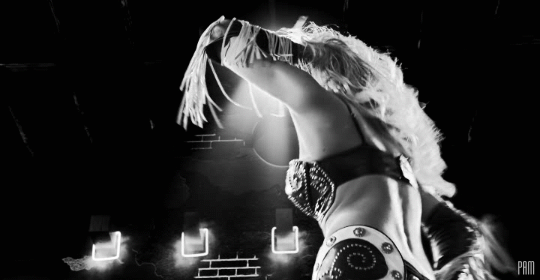
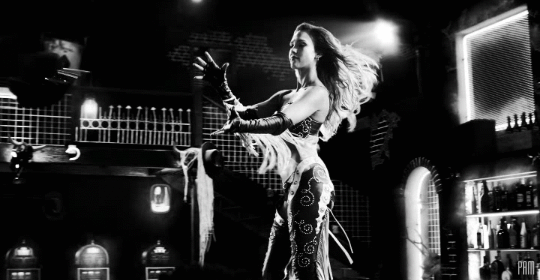
Sin City: A Dame To Kill For (2014)
#2014#gif#film#movie#film noir#comics#dance#black and white#Sin City: A Dame To Kill For#Sin City#A Dame To Kill For#Frank Miller#Robert Rodriguez#Jessica Alba#Nancy Callahan#Nancy#Mickey Rourke#Marv#Bruce Willis#John Hartigan#Hartigan#Eva Green#Ava Lord#Josh Brolin#Dwight McCarthy#Dwight#Joseph Gordon-Levitt#Johnny#Powers Boothe#Senator Roark
128 notes
·
View notes
Text
For Valentine’s Day here’s a list of ships (in no particular order) that have me screaming, crying, and going feral.
1. Allison Cameron x Robert Chase (House)

2. Logan Howlett x Scott Summers x Jean Grey (X-Men)

3. Evan Buckley x Eddie Diaz (9-1-1)

4. Clary Fairchild x Jace Herondale (The Shadowhunter Chronicles)

5. Lisa Cuddy x Gregory House (House)

6. Temperance Brennan x Seeley Booth (Bones)

7. Lexie Grey x Mark Sloan (Grey’s Anatomy)

8. Maggie Rhee x Glee Rhee (The Walking Dead)

9. James Wilson x Gregory House (House)

10. Lucy Chen x Tim Bradford (The Rookie)

#allison cameron#robert chase#logan howlett#scott summers#jean grey#evan buckley#eddie diaz#clary fairchild#jace herondale#lisa cuddy#gregory house#james wilson#temperance brennan#seeley booth#lexie grey#mark sloan#maggie rhee#glenn rhee#lucy chen#tim bradford#house md#x men#911 abc#bones tv#the shadowhunter chronicles#grey's anatomy#the walking dead#the rookie
26 notes
·
View notes
Text

Silly boys being silly boys
#art#character art#artists on tumblr#digital art#my art#roy#ross#robert#roy spooky month#sm roy#sm robert#robert spooky month#ross spooky month#sm ross#spooky month#spooky month fandom#spooky month fanart#teehee how silly#SILLY BOYS#I imagine this as them in a Photo Booth#the silliest
103 notes
·
View notes
Text

Phone Booth, Portland, OR © Robert Pallesen
#Phone Booth#Street Scene#Fences#PDX#Portland#Urban Landscape#Black and White Photography#Robert Pallesen
49 notes
·
View notes
Text

also the man, the myth, the legend. Thoroughly enjoyed his panel, he was very verbose and intelligent, and kind to the people who were not necessarily the best at phrasing their questions.
#idc after eric robert i am /very/ judgy on panel guests. he made me so uncomfortable when i asked him something and then later in the photo#*s#booth. here I'm just smiling awkwardly because I'm shy not because my skin is crawling.#sophie was still 10000% my favourite guest though. so kind and very generous with her time at the signings. loved her.#random#my face
7 notes
·
View notes
Text

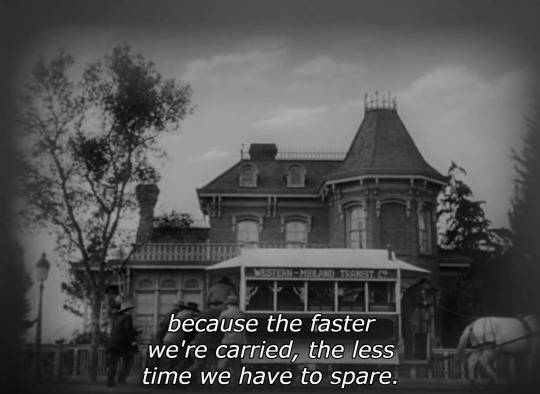
The Magnificent Ambersons(1942)
#film#the magnificent ambersons#1942#orson welles#robert wise#booth tarkington#40s#old hollywood#vintage#...
14 notes
·
View notes
Text







Lindsay Cooper - Rarities Volumes 1 & 2 (2014)
#lindsay cooper#irène schweitzer#trio trabant a roma#alfred harth#phil minton#james tulley#chris cutler#david thomas#bill gilonis#robert wyatt#conrad bauer#sally potter#rer megacorp#georgie born#irita kutchmy#fred frith#celia gore booth#elvira plenar#kate westbrook#vicky aspinall#annemarie roelofs#dagmar krause#maggie nicols#alessandro achilli#brian cooke#larry looney#lucio briganti#loading
4 notes
·
View notes
Text
For ANZAC Day 2025 (some tenuous links)
Over the Easter break, I started watching The Narrow Road to the Deep North miniseries and I ordered Richard Flanagan’s 2014 Booker Prize winning novel that inspired it for my Kindle. I usually feel a bit of a connection to this kind of thing as I am named after my father’s older brother Malcolm who died as a PoW of the Japanese. He had been captured during the fall of Singapore and had served…

View On WordPress
#ANZAC Day#ANZACs#First World War#gallipoli#James Brown Bryant#Joseph Peter Lalor#Malcolm Booth#POWs#Prisoners of the Japanese#Rats of Tobruk#Richard Flanagan#Robert John Booth#Second World War#Sir Leslie Morshead#The Narrow Road to the Deep North#Western Front
4 notes
·
View notes
Text


Terror Threads has released two Silent Night, Deadly Night designs by Casey Booth and Yannick Bouchard on T-shirts ($30) and crewneck sweatshirts ($45).
#silent night deadly night#horror#80s horror#1980s horror#linnea quigley#terror threads#casey booth#yannick bouchard#shirt#gift#80s movies#slasher#80s slashers#billy chapman#robert brian wilson
27 notes
·
View notes
Text
Tiny Review: Loving Vincent 2017. MUST WATCH. For creatives, by creatives.

By itself, this is a pretty good and simple mystery story already. Add to this the inspiring message by a struggling Vincent, and this is a MUST WATCH for creatives everywhere.
The artist themes of self-doubt, struggle, misfit, obsession and love of life resonates.

Loving Vincent is a 2017 adult animated drama film written and directed by Dorota Kobiela and Hugh Welchman. It is a Polish-UK co-production, funded by the Polish Film Institute, and partially through a Kickstarter campaign. It stars Robert Gulaczyk, Douglas Booth, Jerome Flynn, Saoirse Ronan, Helen McCrory, Chris O’Dowd, John Sessions, Eleanor Tomlinson, and Aidan Turner.
#loving vincent#kickstarter#robert gulaczyk#douglas booth#jerome flynn#saoirse ronan#helen mccrory#chris o'dowd#john sessions#eleanor tomlinson#aidan turner#animated movies#drama movies#mystery movies#vincent van gogh#2019 movies#movie review#must watch
11 notes
·
View notes
Photo




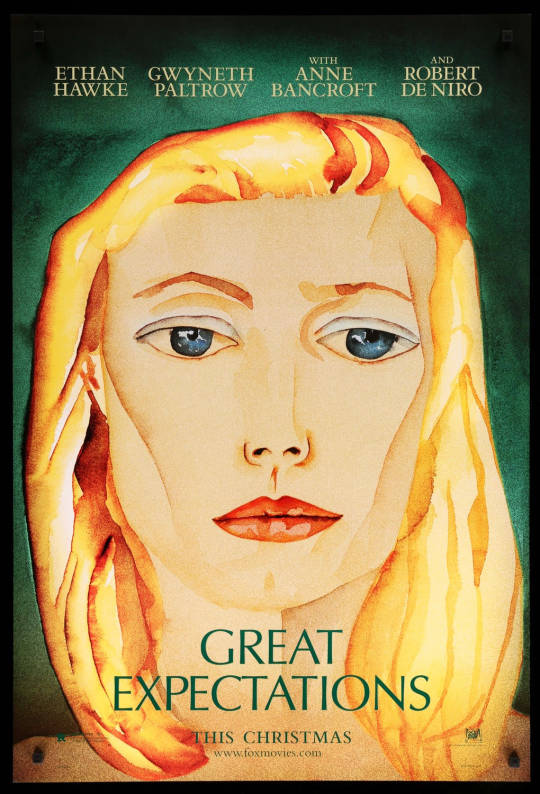
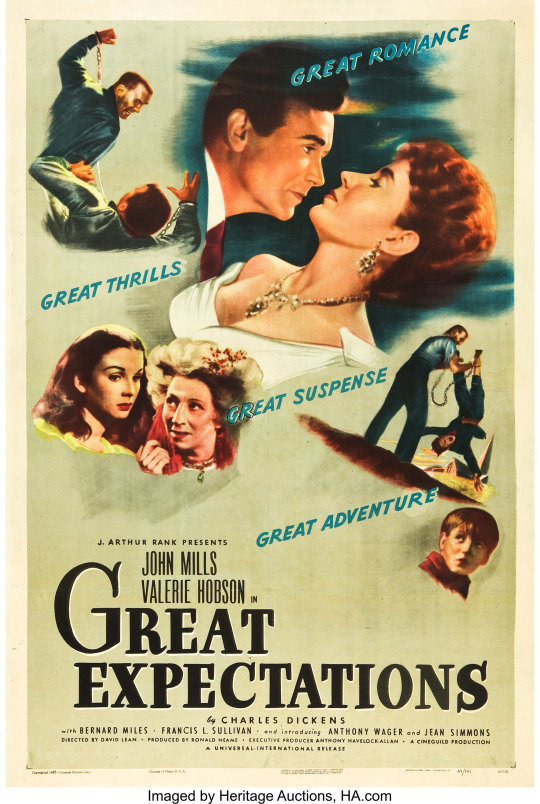




Great Expectations 1917 - 2023
#great expectations#olivia colman#fionn whitehead#shalom brune franklin#jeremy irvine#holliday grainger#helena bonham carter#ralph fiennes#douglas booth#gillian anderson#ray winstone#ioan gruffudd#charlotte rampling#ethan hawke#gwyneth paltrow#robert de niro#anne bancroft#john mills#alec guinness
56 notes
·
View notes
Text
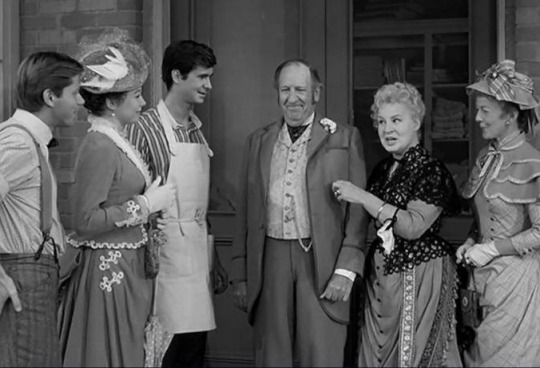
Die immer wieder ganz besonders niedliche Eheanbahnungskomödie The Matchmaker können wir diesmal als außerordentlich verspäteten Gedenkfilm für Robert Morse (hier angekündigt) und als Auftakt der Feirlichkeiten zum 90. Geburtstag von Shirley McLaine (am 24. April) verwenden, sowie als Vorbereitung fürs Musiktheater.
#The Matchmaker#Robert Morse#Shirley MacLaine#Anthony Perkins#Paul Ford#Shirley Booth#Perry Wilson#Film gesehen#Joseph Anthony
9 notes
·
View notes
Text

@story-courty I can corroborate! Edwin Booth, elder brother of John Wilkes and the man considered possibly the greatest actor of the nineteenth century, saved Robert Todd Lincoln from falling from a train platform in Jersey City, New Jersey. We don't know the exact date of the incident, but it most likely occurred sometime in 1863 or 1864, when Robert was returning to Washington from Harvard, and Booth was going to Richmond with John T. Ford, owner of (believe it or not) Ford's Theater.
The Library of Congress website provides a link to the April 26, 1865 edition of the Cleveland Morning Leader that tells the story like this.
Not a month since, Mr. Edwin Booth was proceeding to Washington. At Trenton, there was a general scramble to reach the cars, which had started, leaving many behind in the refreshment saloon. Mr. Edwin Booth was preceded by a gentleman whose foot slipped as he was stepping upon the platform, and who would have fallen at once beneath the wheels had not Mr. Edwin Booth's arm sustained him. The gentleman remarked that he had had a narrow escape of his life, and was thankful to his preserver. It was Robert Lincoln, the son that that great, good man who now lies dead before our blistered eyes, and whose name we cannot mention without choking. In some way the incident came to the knowledge of Lieutenant General Grant, who at once wrote a civil letter to Mr. Edwin Booth, and said that if he could serve him at any time he would be glad to do so. Mr. Booth replied, playfully, that when he (Grant) was in Richmond, he would like to play for him there.
Robert Lincoln confirmed the story for the Century Magazine in 1909. (Possibly as part of nationwide centennial celebrations of Abraham Lincoln's birth).
The incident occurred while a group of passengers were late at night purchasing their sleeping car places from the conductor who stood on the station platform at the entrance of the car. The platform was about the height of the car floor, and there was of course a narrow space between the platform and the car body. There was some crowding, and I happened to be pressed by it against the car body while waiting my turn. In this situation the train began to move, and by the motion I was twisted off my feet, and had dropped somewhat, with feet downward, into the open space, and was personally helpless, when my coat collar was vigorously seized and I was quickly pulled up and out to a secure footing on the platform. Upon turning to thank my rescuer I saw it was Edwin Booth, whose face was of course well known to me, and I expressed my gratitude to him, and in doing so, called him by name.
Edwin Booth didn't know the name of the man he'd saved until 1865, when Adam Badeau, another officer on Grant's staff who Lincoln had told the story to, wrote him a letter about it. Booth was a staunch Unionist and admirer of Abraham Lincoln, and he'd been feuding with his younger brother for years because of his Confederate sympathies. The news of the assassination devastated him, and he later told a friend that one of the only things that got him through those dark months afterward was the knowledge that he'd saved Robert's life. People initially thought that the Booth name was too blackened for Edwin to continue his career in acting, but he made a triumphant return to the stage in 1866 for a performance of Hamlet that got rave reviews, and eventually opened his own theater and went on a worldwide tour.
I can't fail to mention that this is only one of the coincidences regarding presidential assassinations in Robert Todd Lincoln's life, because he is the only man to have been present at events surrounding three of the four assassinations of American presidents. He was present at his father's deathbed after the assassination (though he wasn't at the theater and always regretted it, because he would have been sitting at the back of the box between Booth and his father). In 1881, he served as Secretary of War under President James Garfield, and was with him at the train station when he was shot by a crazed office-seeker. Robert secured the services of the doctor who had cared for Abraham Lincoln--though, unfortunately, this doctor's overzealous methods, insistence on his own theories, and refusal to follow antiseptic practices caused the infection that actually killed Garfield more than two months later. In 1901, Robert Lincoln was working as president of the Pullman Palace Car Company when President William McKinley invited him to the Pan-American Exposition in Buffalo, New York where McKinley was making an appearance. At the same time Lincoln's train pulled in to the station, McKinley was shot by an assassin who'd joined the receiving line to meet him. Lincoln immediately went to the hospital to visit the injured McKinley, who died six days later.
Robert Lincoln was a major figure in the Republican Party whose name was often mentioned as a presidential candidate, but Robert never pursued the office, for what should be obvious reasons.
This blog from the U.S. National Archives sums up the situation well.
When Theodore Roosevelt assumed the Presidency, Lincoln wrote him. “I do not congratulate you for I have seen too much of the seamy side of the Presidential Robe to think of it as a desirable garment.” Later, he was invited to the White House as a figurehead of the Republican Party. He declined and swore he would never step foot in the White House again. “I am not going and they’d better not invite me,” he said, “because there is a certain fatality about presidential functions when I am present.”
#answered asks#history is awesome#presidential talk#story-courty#i knew this story before i started my lincoln deep dive this year#though it hadn't shown up in any of my reading yet#the only place it was mentioned was in the lincoln assassination episode of 'timeless'#where robert todd is a character and is given an ironic line about how his family owes a great debt to the booths#i'm glad to have had the chance to do a little digging and confirm the details
34 notes
·
View notes
Text
Working Week with Tracey Thorn & Robert Wyatt - Venceremos (We Will Win) (Bossa Version) (1984)
This beautiful song was a tribute to Chilean singer Víctor Jara, who was arrested, tortured and murdered by the Pinochet regime. Working Week was formed by Simon Booth out the ashes of Weekend, and on this tune, Tracey Thorn, Robert Wyatt and Claudia Figueroa share the vocals.
#Working Week#Venceremos#Tracy Thorn#Robert Wyatt#Claudia Figueroa#Venceremos (Bossa Version)#Victor Jara#Simon Booth
31 notes
·
View notes